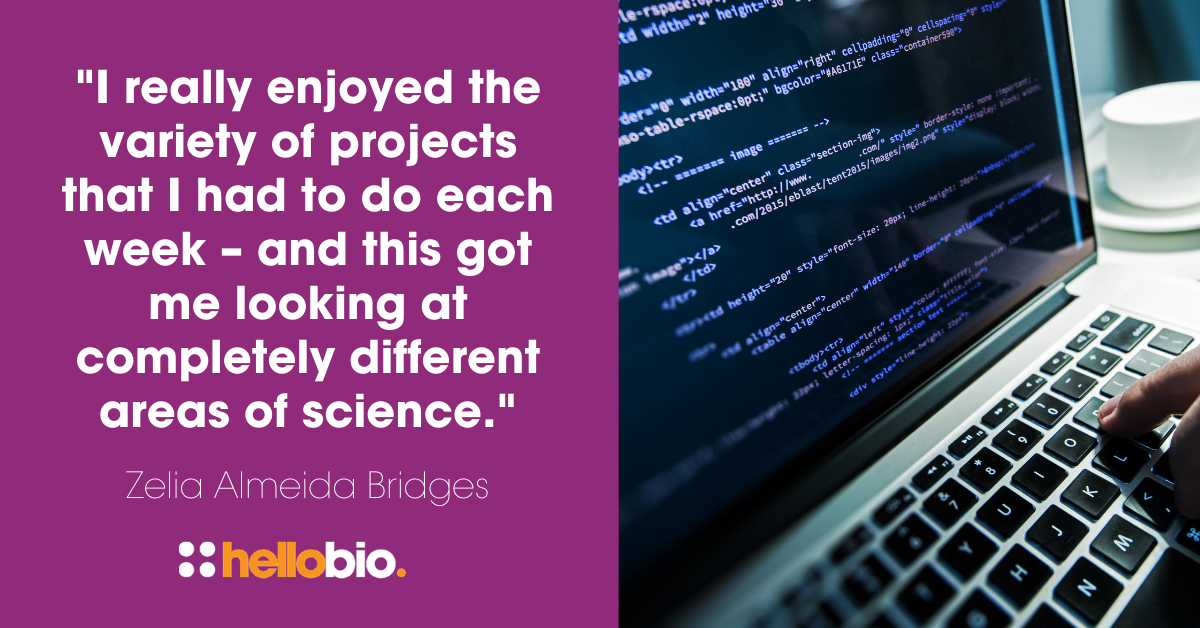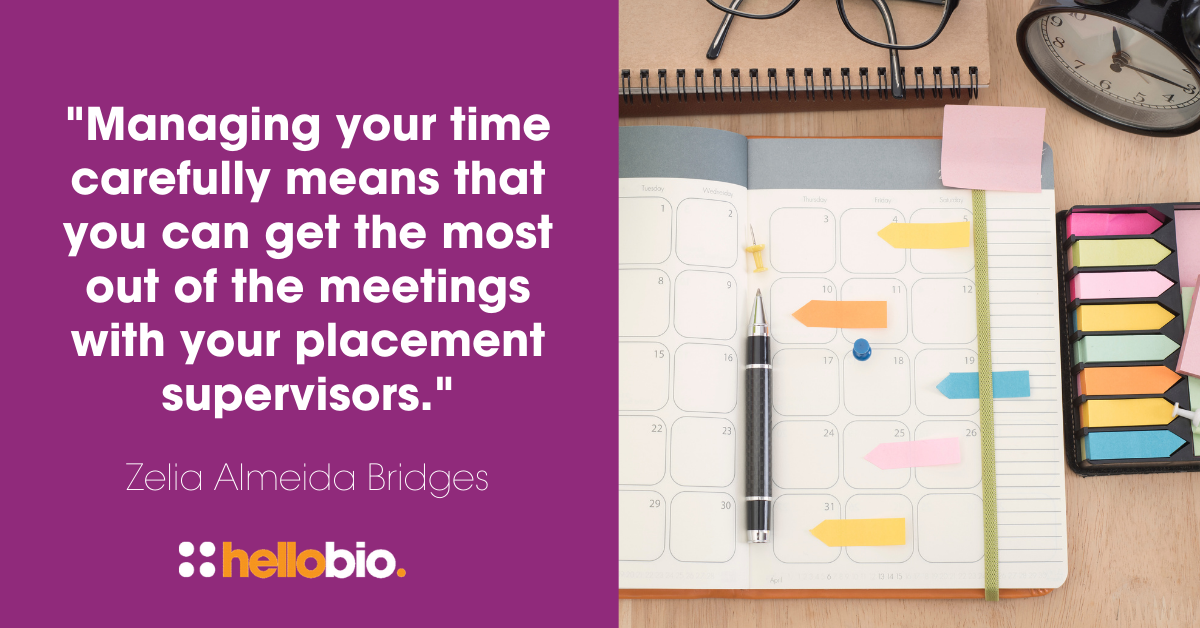Wifi Troubles: my online science work placement
I am a second year Clinical Pharmacology student at St George’s University of London. As part of my degree, I undertook a 6-week work experience placement with Hello Bio – and due to the challenges of Covid-19, it was agreed that I would do this placement working remotely from home.
I have never done anything like this before, so wasn’t sure what to expect – how was it going to work, would I feel part of the team, would I learn anything valuable?
I discovered that I was working across two departments – marketing and product management. The placement was structured so that each day of the week had a different focus. These included days more centred on the social media side and others on researching and writing technical product and category descriptions. I was also tasked with various articles, protocols and FAQs. I really enjoyed the variety of projects that I had to do each week – and this got me looking at completely different areas of science.
One thing I especially enjoyed was researching and writing an article about award-winning women in STEM. It was fascinating and inspiring – and opened my eyes to the many possibilities for women in science!
Lots of challenges...
There were many challenges that I faced during my placement. My communication with the team at Hello Bio and finding out my exact tasks for the day was hugely reliant on the internet working. So, it was a BIG problem when Wi-Fi was down. I also found it difficult getting access to software and not being great with tech, it was a lengthy and frustrating process that may have been easier if the placement had been in person. It was also a shame to not be able to go into the normal work environment and work with experienced members of staff.
...but no commute
The structure of my placement was very well thought out and an overview of all the tasks to be completed over the course of the placement was given to me. So this did mean that even with my internet issues, I still knew what needed to be done and could keep working. Working from home gave me flexibility, and unlike an in-person work placement, I didn’t need to find accommodation or the hassle of getting there. It was also very nice not to wake up and have a long commute to work.
Feeling connected
I was originally worried about how I could feel part of the team whilst working remotely – whilst it wasn’t as good as being in the office (no Friday cakes!), I had twice daily catch-up meetings with my work supervisors, at the start and end of the day – so I was able to feel connected (when my Wifi was working!). It also helped to break up the day, which can seem pretty long if you are working on your own at home.
Did I benefit from this online placement?
Yes – definitely! I gained some specific skills – learning html and website skills, and researching different scientific areas. But I also learnt how important communication and organisation are.
For this placement, I really found to-do lists useful. In the morning I would jot down everything to be completed that day and how long it would take. Managing your time carefully means that you can get the most out of the meetings with your placement supervisors, and can make sure you have completed and achieved something by the end of the placement.
My advice for students and supervisors thinking about a remote placement…
As the remote experience relies so heavily on technology, I think it is really important to have a back-up plan for when that fails at home. This might mean your university providing a dedicated work-space, with internet and equipment for undergrad students for example. It can’t be the library (Zoom meetings are a bit noisy), or the toilets (too much echo!) – so some thought needs to go into this.
I am still undecided about what I want to do after my degree has finished but thanks to this placement, I have a wider view of what I can do with my degree. I look forward to what the future holds, and who knows – maybe one day a future work placement student will be writing about me in their ‘Award-Winning Women in STEM’ article!
_________________________________________________
If you enjoyed this article, why not check out the other resources available on our blog. We are passionate about supporting life scientists, early career life scientists and PhD students - with really low- priced reagents and biochemicals, early career scientist grants, and resources to help with both personal and professional development. We know how tough it is - so we hope you find these helpful!
Advice & guidance for life scientists
Click below to view our essential guides and articles to support life scientists, PhD students & early career life scientists:
Wellbeing for scientists
Click below for our resources to help improve your wellbeing:
Technical resources
Try our Molarity Calculator: a quick and easy way to calculate the mass, volume or concentration required for making a solution.
Try our Dilution Calculator: an easy way to work out how to dilute stock solutions of known concentrations
And - when you get to the stage of planning your experiments, don't forget that we offer a range of agonists, antagonists, inhibitors, activators, antibodies and fluorescent tools at up to half the price of other suppliers - click below to see how we compare with other suppliers:




















